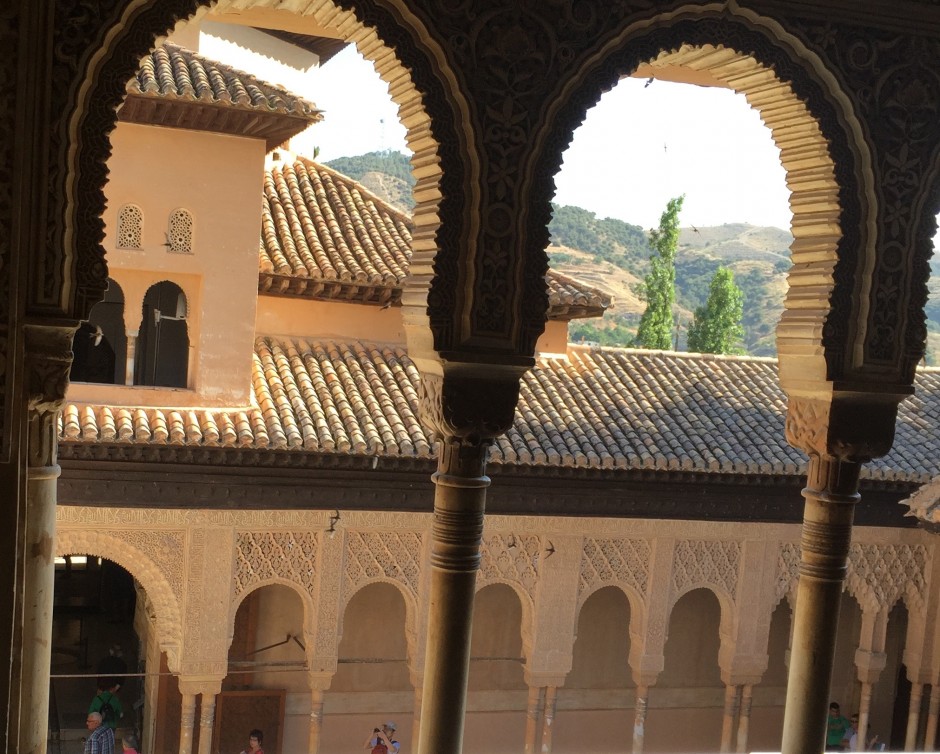On Chapter 12: Christians in Cordoba
This chapter is composed of two separate parts, and although written by the same author (Paul Alvarus) have somewhat contradictory themes. Part A describes the Christian youth such that they are notably well-versed in Arabic and Semitic liturgy. Alvarus goes on to say that while their knowledge of Islamic culture is deep, their respective knowledge of Latin and the Christian scriptures is lacking. To connect this to Reading The Alhambra, I postulate that a Christian visitor to the palace would quite possibly be able to read the caligram inscriptions on the walls, and recognize the lines of poetry and their origin. Part B describes the Christian martyrs Eulogius and Leocritia. Their self-sacrificial nature in defense of Christianity seems difficult to comprehend with respect to the minimal comprehension of the Holy Scriptures as described in Part A. This is especially true of the story of Leocritia who fled from her life as the daughter of a respectable judge to become a Christian, even though her only knowledge of the faith came through secret discussions with a nun.
Chapter 84 part A describes the encounter between Muhammad XII when he handed over the Alhambra to Ferdinand and Isabella. Part B is far more relevant because it details the “Capitulation of Granada”. Of particular interest is #8 (that at no time will the “arms or houses” be taken from the moors), #17 (that no Christians may enter the mosques during prayer), and #44 (that no changes may be made regarding irrigation or water channels). Each of these capitulations were broken at some point, so it is interesting to see how the tourist-ed Alhambra of today compares with the legacy proposed by these terms.
Chapter 86 has little to compare with the Vilchez reading. It details Columbus’s expedition and his requested rewards for his success. It may be useful to note that it stresses the importance of conquest and imperialism to Christian Spain, and one might compare this journey to that of the conquest of Granada.
-Schwartz
